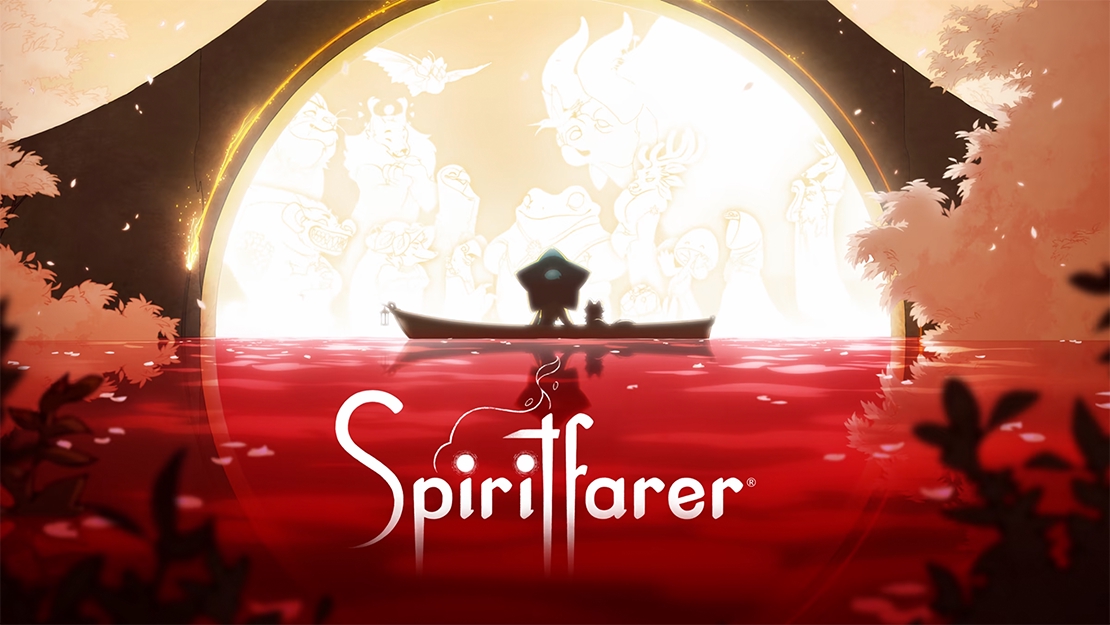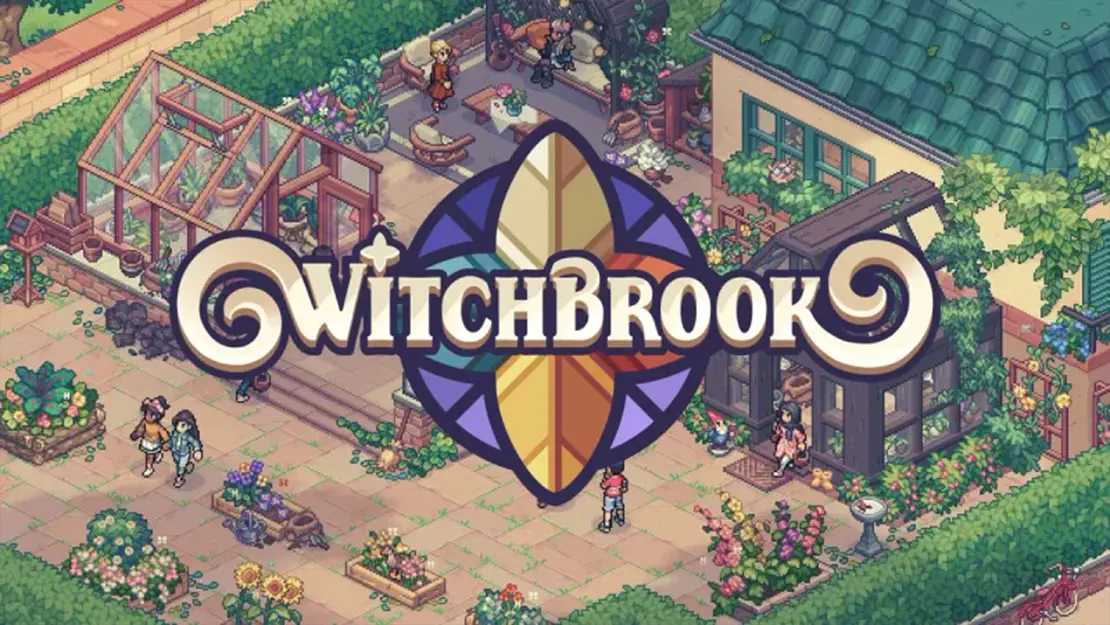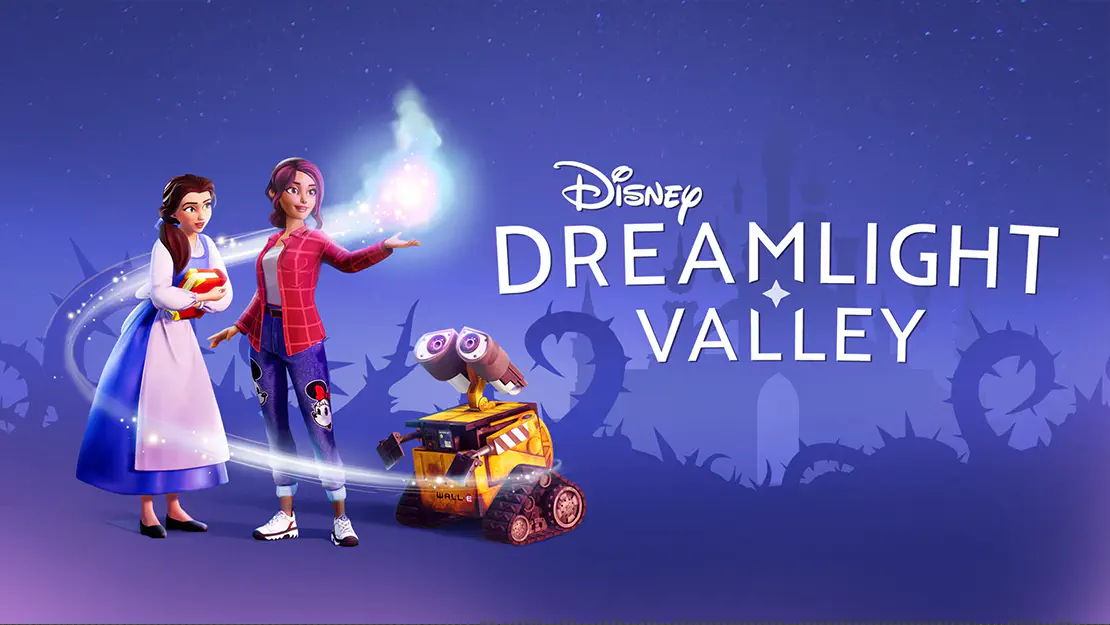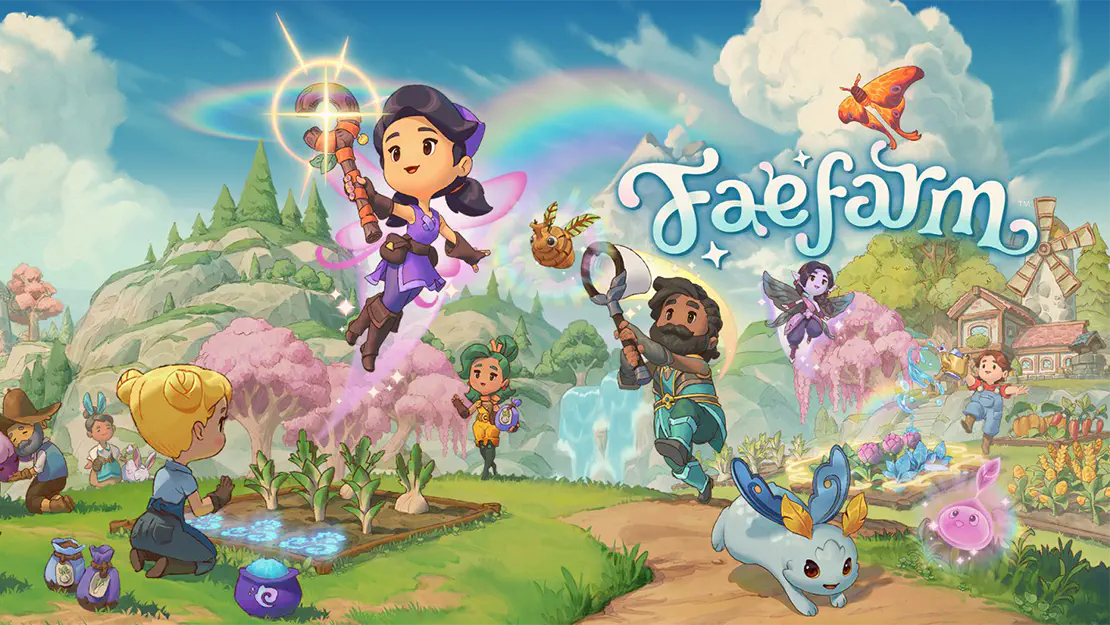Embark on a serene gaming voyage with Spiritfarer in 2023. Developed by Thunder Lotus Games, this unique title offers a blend of cozy management and heartwarming adventure.
As we delve into the peaceful world of Spiritfarer, let’s explore the elements that make it a standout choice for gamers seeking a warm and immersive experience.
Spiritfarer Review: Key Game Elements
- Genre: Life simulator (specifically if you happen to own a boat), farming simulator, adventure, emotional
- Creator: Thunder Lotus Games
- Publisher: Thunder Lotus Games
- Player Modes: Single-player and optional local co-op modes provide flexible gaming experiences
- Platforms: PC, PlayStation, Xbox, Nintendo Switch
- Price on Steam: $29.99
- Price on Nintendo Store: $29.99
- Price on Xbox Store: $29.99
- Price on Playstation Store: $29.99
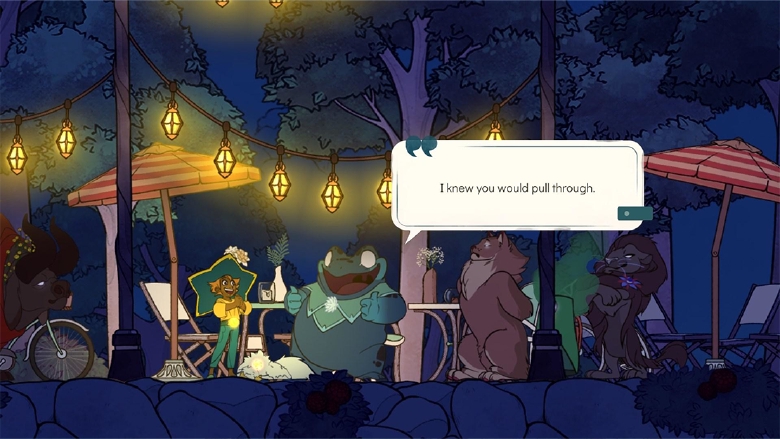
Spiritfarer is a modern take on the mythical epic of the afterlife odyssey.
Instead of the intimidating Charon, the mythical Greek psychopomp ferryman transporting souls across the river Acheron to the underworld, we instead have sweet caring Stella – the Spiritfarer herself.
You play as Stella, navigating a mystical world, managing a quaint boat that ferries spirits to the Everdoor (not the gates of Hades). And she’s accompanied by her adorable little cat, Daffodil. Her ever-constant companion.
The cozy charm emanates from nurturing relationships with anthropomorphic spirits, crafting, and exploring vibrant, hand-drawn landscapes.
With a soothing pace and deeply poignant narrative, Spiritfarer crafts an experience that transcends gaming, evoking a sense of introspection and connection with both characters and the ethereal world they inhabit.
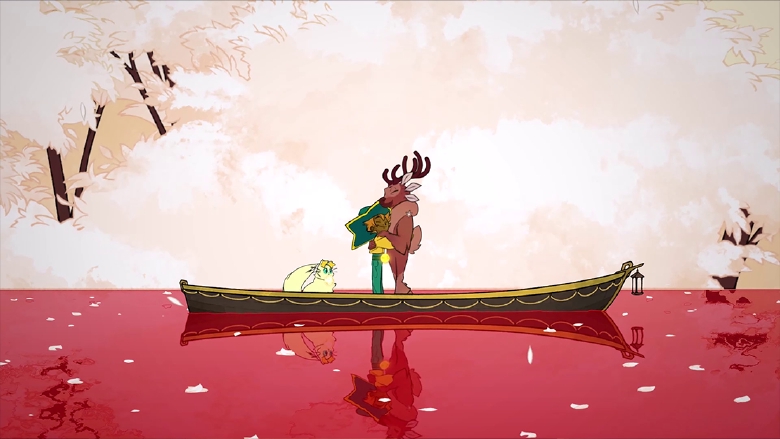
Graphics and Animation
Spiritfarer’s visual palette is typical to the cozy genre: hand-drawn and vying on the side of animated cartoons.
The use of color, especially during the day-night cycle, is something to appreciate, immersing players in the world of the Spiritfarer.
I especially enjoy the change in color tones when triggering some of the events, essentially mini-games within the game activated only when you meet certain key characters. My particular favorite are the Jellyfish and Fireflies events, both creating a darker palette contrast to the rest of the pretty cheery game.
Gameplay Mechanics
Spiritfarer focuses primarily on ship management with heartfelt character interactions. In order to keep progressing in the game, you will need to upgrade your ship in order to keep building new housing for the lost souls you collect along the way.
And – as any gamer worth their salt will know – wherein there is upgrading, there is resource collection to be done. You will need to mine for ores and rocks, chop down trees for wood, and then refine all of these back on your ship.
You will also need to collect food by fishing off of your ship, buying and finding different seeds and grains, and growing your own garden and crops. Then, you’ll need to cook up the characters’ favorite meals and foods to keep them happy as clams. That also goes for animal rearing and making textiles for their houses.
What I’m saying is that it’s basically a farming sim, but on a ship.
As the Spiritfarer, your responsibilities extend beyond steering and managing the boat; they encompass meeting the unique needs of ethereal passengers. Character interactions are the heartbeat of Spiritfarer, each spirit carrying a distinct narrative and set of requests that deepen your emotional connection.
Only once you have met all their needs will they feel at peace enough to finally remove the last tether tying them to life. The gentle balance between managing the vessel and nurturing these spectral relationships crafts a gameplay experience that is both rewarding and emotionally resonant for days after you finish playing.
Spiritfarer has a day-night cycle, and certain events and quests will only be available at specific times of the day. Stella can sleep in her cozy cabin once the sun goes down, though, so you can also speed things up when needed.
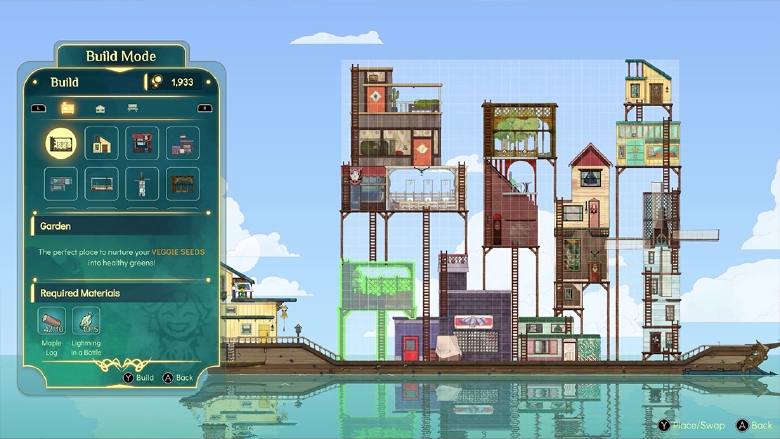
Character Development
In Spiritfarer, character development is the soulful core that elevates the gaming experience. Each spirit onboard is not just a passenger but a poignant narrative waiting to unfold. The game skillfully weaves the intricate threads of their past lives, building emotional connections that resonate with players.
My personal favorite parts of the game are when you find out that certain souls actually knew Stella in their lifetime, and by helping them find resolution, you are in a way also filling in a further part of her story.
Narrative and Storyline
There is no progressive or linear narrative or plot-line to Spiritfarer. As mentioned above, it’s all about piecing together the stories of the different souls you collect along the way, helping them until a final farewell before they walk through the Evergate.
That said, the tasks and quests are gated in such a way that you will need to complete the requests of certain characters before proceeding.
This is because many of the in-game events (such as the Jellyfish, Fireflies, Meteor Shower, Pulsar Rays, etc events) are tied to the characters themselves. They will teach you how to complete the event, and then you can keep playing if even after you’ve said goodbye to them.
By far, the most touching part about Spiritfarer for me is that the houses you build for each unique character remains even after they’ve walked through the Everdoor. They will leave you a memento inside, won’t spoil what it is, that you can collect and use to unlock other elements in the game, primarily skills, that will help you in world exploration.
No matter how much time passes, you will always get to enter the characters’ dream houses, and be reminded of the person who once was and has now moved on.
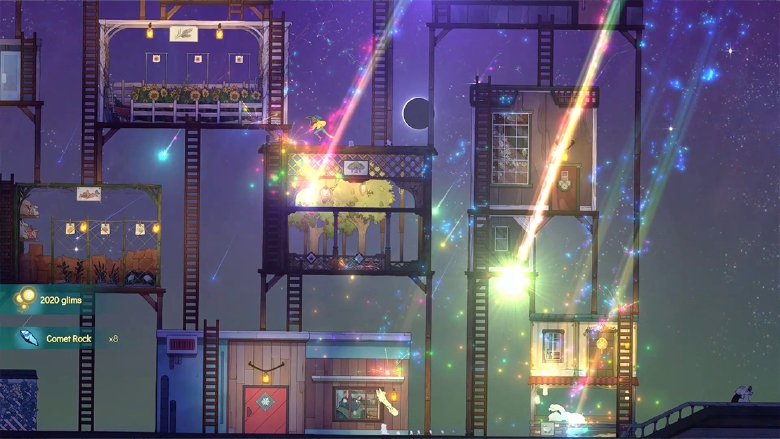
Quests and Tasks
The tasks bestowed upon you by spirits range from building homes to exploring distant islands, ensuring a diverse and engaging experience.
While the progression may feel somewhat formulaic at times, the game’s charm lies in the execution rather than the novelty of tasks.
Spiritfarer adeptly avoids the pitfall of monotony by integrating these quests seamlessly into the broader narrative, making each undertaking a meaningful step in the journey.
Plus, you’ll need to keep exploring to keep meeting new characters and also get resources.
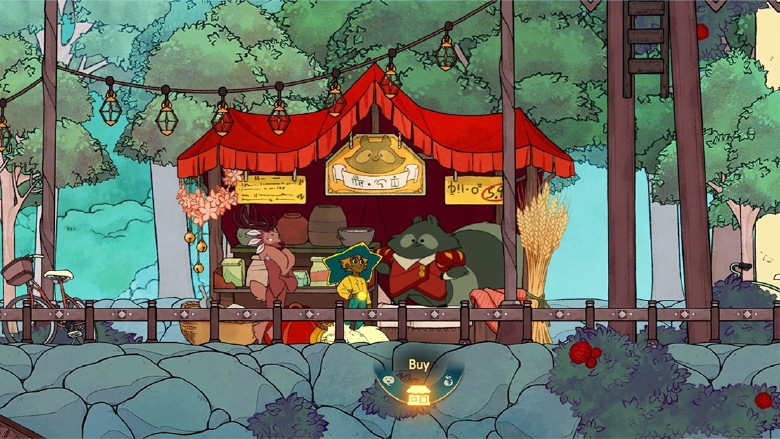
World Exploration
When first starting Spiritfarer, the world map will be largely hidden. You will need to uncover it by sailing the seas with your ship.
Navigating the vast seas reveals a kaleidoscope of landscapes, from serene rice fields to bustling spirit cities. It’s clear the locations are inspired by iconic real places such as Kyoto or San Francisco.
Each island tells a unique tale, and the game encourages exploration with hidden chests, secrets, and surprises that reward the curious traveler. Don’t get frustrated if there are things you can’t reach or do yet! It just means you need to go back later once you’ve unlocked a new skill.
Travelling the seas by ship can be a slow process, perfect for cozy gamers looking for a calmer pace where they can talk to characters, fish, cook, and farm in peace.
That said – if you have a quest to fulfill and want to speed things up, there is a fast travel option. Just hit up a ‘bus stop’ close to you, talk to Alex the seal, and he’ll be able to whisk you away to another bus stop location.
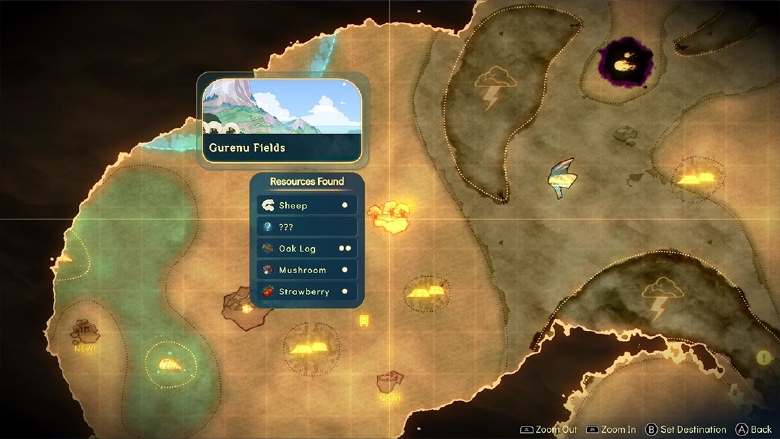
What makes a game about grief cozy?
In navigating the delicate theme of grief, Spiritfarer achieves what I consider to be a rare feat by infusing warmth and comfort into the gaming experience.
Getting to know the characters slowly, by completing their requests and gaining their trust, is a humbling experience in real-life human interaction. It opens the door to understanding that humans are intricate creatures with vast complex worlds of their own. Each character has their own story to tell, a life well lived, regrets, memories, things to share. And while, yes it can get repetitive and mundane after a while, those initial few characters you meet hit you hard.
Spiritfarer masterfully turns a potentially somber subject into a comforting journey, making it particularly appealing to cozy gamers seeking a thoughtful and emotionally resonant experience.
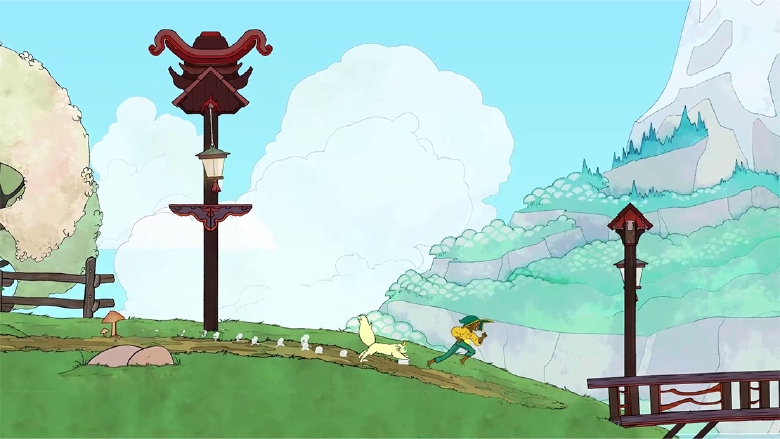
Spiritfarer Pros
- Enchanting Visuals: Spiritfarer’s hand-drawn aesthetics create a mesmerizing world, enhancing the overall gaming experience.
- Emotional Resonance: The game masterfully explores themes of life and death, fostering a deep emotional connection with characters.
- Varied Gameplay: The blend of management, exploration, and heartfelt storytelling offers a multifaceted and engaging gameplay experience.
- Cozy Atmosphere: Spiritfarer excels in providing a cozy and comforting ambiance, making it an ideal choice for relaxation.
- Meaningful Quests: Each quest contributes to character development and overall narrative, ensuring a purposeful journey through the afterlife.
Spiritfarer Cons
- Quest Progression Pacing: Some players may find quest progression to be hindered by occasional stalls, affecting the overall flow.
- Limited Inter-Character Interaction: The game lacks extensive inter-character conversations, reducing the potential for dynamic relationships among spirits.
- Resource Gathering Tedium: Engaging in resource-intensive tasks might become repetitive, feeling more like a chore than an enjoyable gameplay element.
- Potential Monotony: Certain quest elements may feel repetitive, impacting the overall sense of variety in the gameplay.
- Character Staleness: It’s been a few years since I first played this game during COVID, and I can only remember a handful of characters from the souls I helped. Most of them get a bit boring after a while.
Conclusion with Scoring System
Spiritfarer offers a unique blend of cozy management and heartfelt storytelling. With its cozy graphics and emotionally resonant narrative, the game stands out in the cozy gaming niche.
The game design is commendable, providing engaging mechanics that center around ship management and character connections. The cozy factor is high, offering a comforting experience for players.
However, occasional pacing issues and limited inter-character interaction slightly impact the overall experience.
Here are the scores:
- Game Design: 3.5/5
- Game Narrative: 4/5
- Game Mechanics: 3/5
- Cozy Factor: 4.5/5
- Platform Availability: 3.5/5
As a cozy gaming enthusiast, Spiritfarer sits as one of my favorites in terms of heartfelt stories. While not without flaws, it just feels so comforting everytime I slip back into Stella’s big hat and navigate the waters of the Evergate.
